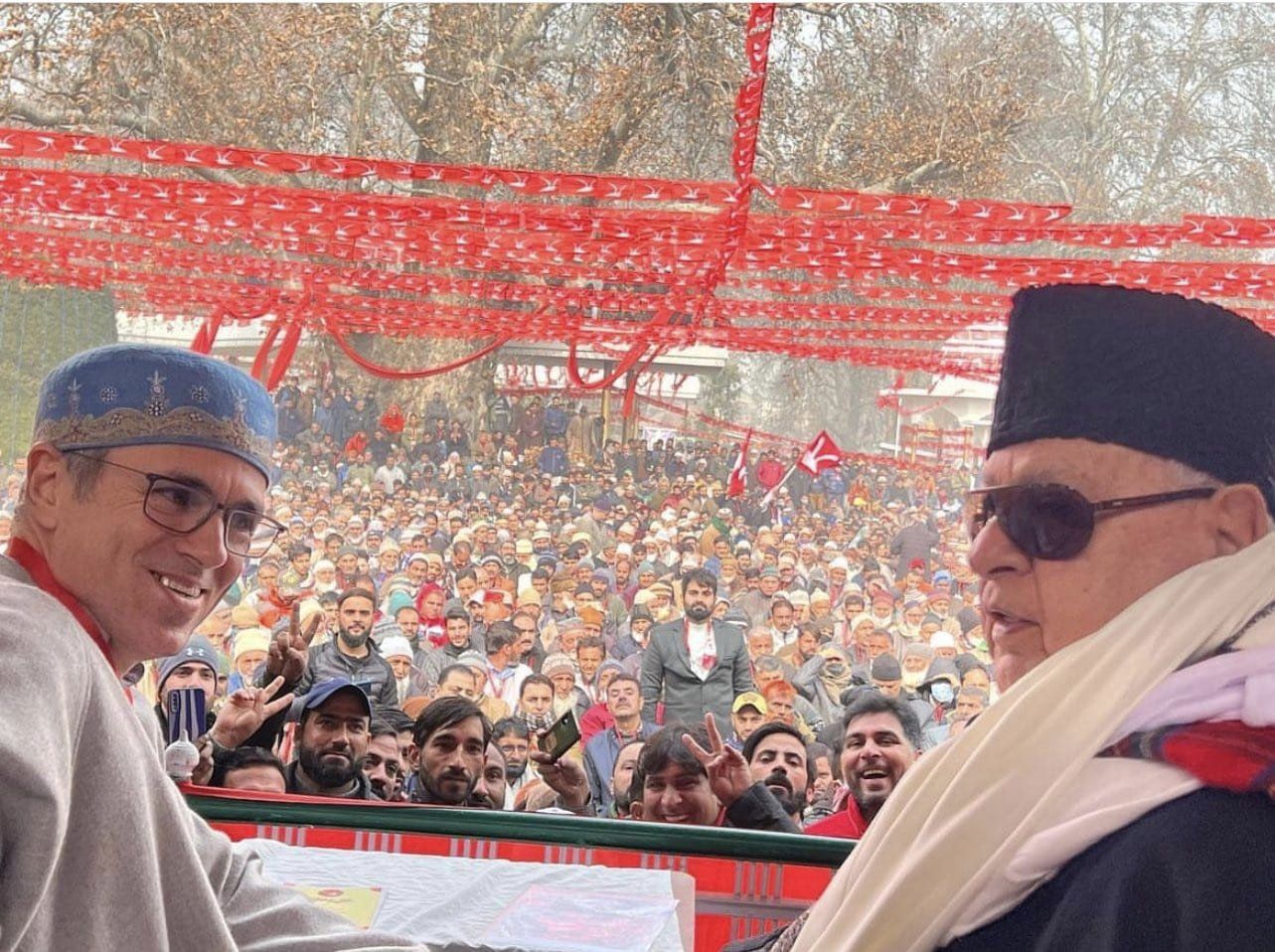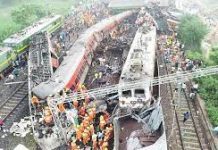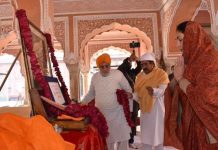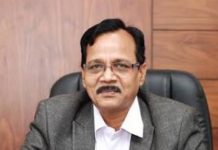
In post-Article 370 Kashmir, new dynamics operate and the nature of politics has changed. This has drastically reduced the scope for Abdullah, already hemmed in by his advanced age, to do his normal politics and get a majority of people to vote for his party, writes Riyaz Wani
A fortnight after Dr Farooq Abdullah, 85, suddenly announced his resignation as the president of National Conference, he was re-elected as the party president on December 5 as a consensus candidate. At the end of it, nobody was any wiser as to why Abdullah resigned in the first place and why he stood again for re-election, more so when one of the reasons he gave for quitting was to pave the way for the younger generation to take over.
National Conference general secretary Ali Mohammad Sagar said only Abdullah’s nomination was received till the last date of filing the nominations.
Abdullah has been the perpetual president of the NC since he took over the reins of the party after his father, the NC founder Sheikh Mohammad Abdullah passed away in 1982. His son Omar Abdullah has been the working president.
Abdullah’s continuation at the helm is certain to help the party in the run up to the Assembly elections likely to be held next year. The decks for Assembly elections have already been cleared after the Delimitation Commission submitted its final report about the increase in the number of the Assembly seats and the redrawing of electoral constituencies.
The National Conference, which is a part of the People’s Alliance for Gupkar Declaration (PAGD) with the PDP, has decided to contest elections alone, after indicating early this year that the alliance will fight polls jointly.
Though it may have appeared logical for the PAGD to decide to fight polls together, their experience of doing this during the District Development Council polls in 2020 didn’t inspire much confidence. The parties squabbled with one another over seat-sharing and later also fielded proxy candidates against each other. Though the PAGD still managed to win a majority of seats in the DDC elections, it left a bad taste in mouth among the partners. Soon after the elections were over, the People’s Conference led by Sajjad Gani Lone quit the PAGD citing the issue of proxy candidates. Or so he claimed. Lone has since gone about strengthening his party in the north.
However, the rest of the PAGD has stuck together. The parties might arrive at a post-poll alliance in case they have enough seats to form a government which looks unlikely considering the political scene in the union territory has become crowded now.
Crowded scene
With the arrival on the scene of the newly floated party of Ghulam Nabi Azad, there are now many parties vying for political power.
Azad’s is the second political entity after the Apni Party to have come up after the abrogation of Article 370 in August 2019. Now, there are around eight parties – BJP, NC, PDP, Congress, PC, Apni Party, AAP and Azad’s party – helmed either by major leaders or the major political organizations. This excludes other minor organizations such as the Panthers Party, Communist Party, Engineer Rashid’s party etc. Such a congested political space is unlike any other state in the country – some of which with a disproportionately larger population – where the principal electoral contest is largely confined to two to three parties.
This has made Abdullah’s presidency critical for the National Conference. Along With Omar, he is the party’s most identifiable face, both locally and at the national level. Soon after electing Abdullah again as its president, the National Conference called for the restoration of Article 370 and 35A of India’s constitution and statehood to Jammu and Kashmir.
The party also made a strong pitch for holding Assembly elections. The demands were made in a resolution passed at the delegate meeting to elect Abdullah as party president. The meeting was held at the mausoleum of National Conference founder Shiekh Mohammad Abdullah on his 117th birthday.
“It was promised by the country’s Home Minister that the much-awaited assembly elections will be held after the delimitation process is over. Now that the process is complete and the final updated voter list is out, still there is no announcement for assembly elections,” the resolution read.
“Considering the political situation in J&K, this delegate session resolved that Articles 370, 35-A be restored to their original, undiluted form,” the resolution further said. “It also demanded that the Centre should restore full statehood to Jammu and Kashmir and announce the assembly election dates at the earliest.”
The resolution urged the people of India to rise to the occasion and ask the BJP-led central government to undo injustices in Jammu and Kashmir.
This is a rhetoric that the National Conference expects will resonate with people during the elections. More so, the demand for the withdrawal of Article 370 and 35A, which although unrealistic under the circumstances, plays to the sentiment of Muslims in the region.
Tough competition
But the rhetoric of the National Conference on Article 370 faces a tough challenge from that of the PDP on the issue. PDP president Mehbooba Mufti has been peddling a hawkish narrative on the revocation of J&K’s special status. Addressing a gathering in Srinagar recently, Mufti said that the centre will be forced to restore Article 370.
“I swear by Allah whatever BJP snatched from us on August 5, 2019 will be brought back with interest,” she said while referring to the abrogation of J&K’s special status under Article 370 by the Centre,” she asserted while addressing the party’s youth convention in Srinagar on November 27. “India is not the BJP. J&K acceded to India of Gandhis, Nehrus, Abul Kalam Azads and we won’t allow the country to become BJP’s battleground.”
The National Conference, on the other hand, has maintained a more diplomatic stance on the issue. In doing so, it not only expects to broaden its appeal across the religious and regional divide in the union territory, it also doesn’t want to antagonize the centre, which is hostile to a strident political demand for autonomy. Will adopting a political middle ground pay off for the National Conference. The situation in the UT has become far too complex to lend itself to an easy prediction. In the Kashmir Valley alone, there are six reasonably well-placed parties including National Conference which are jockeying for power.
Could senior Abdullah make a difference? Very unlikely. No doubt, Abdullah has been in politics for over forty years and he has been a great survivor so far. He has led his party to electoral triumphs, with one of them of 1987 being the most contentious. The Assembly election that year is believed to have been widely rigged by the National Conference in league with the Congress and is thus considered a trigger for the subsequent separatist struggle.
In post-Article 370 Kashmir, new dynamics operate and the nature of politics has changed. There are now many more contenders for power which, in turn, has created a space for the BJP to emerge as a main player. This has drastically reduced the scope for Abdullah, already hemmed in by his advanced age, to do his normal politics and get a majority of people to vote for his party.












